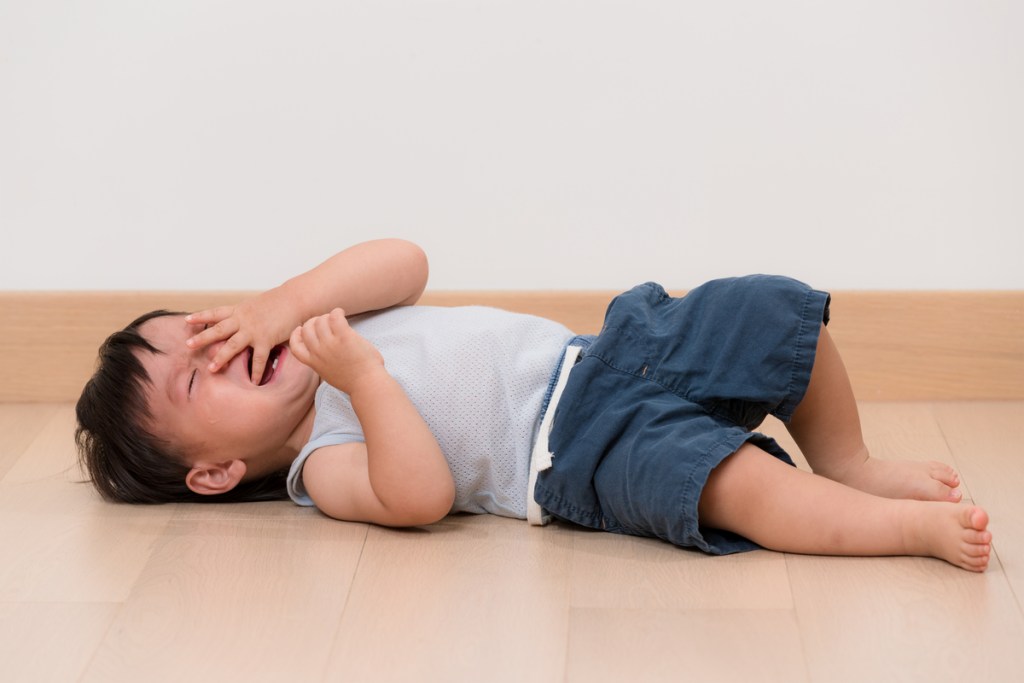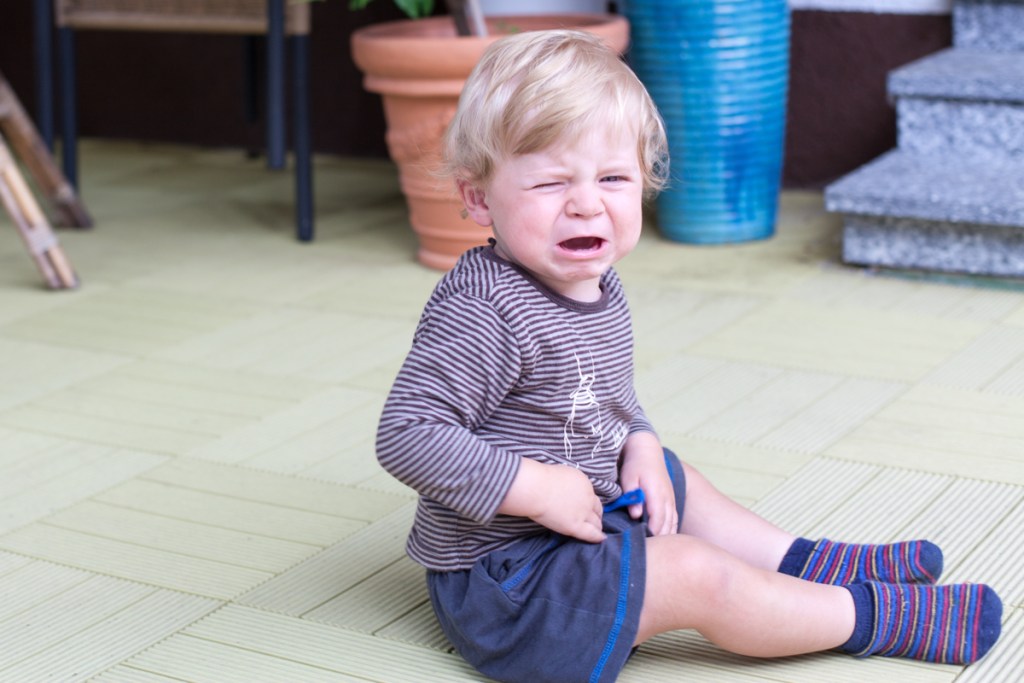All toddlers will throw tantrums from time to time. Not being able to express what they are feeling and turning into a gelatinous pile of boneless child is their area of expertise. And that’s going to happen no matter how hard you try to prevent it. But if you are asking yourself “why is my toddler throwing tantrums all of the time?” we have some reasons why the tantrums could be ramping up. Let’s see why your a toddler throwing tantrums could be happening more often than it should and when it could mean something more.

Reason – your toddler is tired
Solutions
- Routine sleeping schedule
- 12 to 14 hours of sleep a night
- Daily nap(s)
If your toddler is not getting these needs met, their mind and body are not going to function properly. A consistent bedtime routine is important. Making sure they take that mid-day nap will help lessen the chance of an additional evening meltdown.
The most important bit is that they are getting enough sleep each night. You know how you feel when you have to work after you’ve slept poorly. If you want to cry at your desk, imagine how your toddler feels. Inconsistent sleep will lead to daily tired tantrums.
Reason – your toddler is hungry
Solutions
- Don’t skip meals
- Plenty of snacks
- Always carry snacks
We have all been so hungry that we were a completely different person until we were fed. But we can go grab ourselves a snack. Your toddler depends on you to make sure they get enough to eat.
If your notice your toddler throwing an extra tantrum at the same time in between lunch and dinner, that should be a sign that they need a snack. Keep some options in your car and have some snacks if you’ll be running errands with your child. A full tummy will limit your toddler’s outbursts.
Reason – your toddler is frustrated
Solutions
- Explain your day to your toddler
- Let them know of any changes
- Include them in decision making
Toddlers are smart. Too smart. Even if they don’t fully speak, talk to them about what you are going to do and where you are going to go. Think about how you would feel if you were put in a car without being told where you were going, how many places you were going to, or when you would be able to go home. That sounds like the plot of a Liam Neeson movie, right?
Before you leave you can explain the day. Then you can break it down place by place or errand by errand. After each stop, ask your toddler if they are okay to keep going. Let them have a say. If you have 2 errands to run, ask them which they would like to do first. Communication with your little one will help them feel more included and less likely to have a meltdown.

When to worry
What to watch for
- Multiple tantrums a day
- Tantrums that last longer than 15 minutes
- More violent tantrums
- Tantrums in children over 5 years old
You may not want to hear this, but temper tantrums in toddlers are common and normal. One a day is nothing to worry about quite yet. But if you have noticed the tantrums lasting longer than usual coupled with your toddler having more than one a day, that could be a cause for concern.
If you have checked off the usual suspects of hunger, tiredness, and not communicating to your toddler, there could be another issue you haven’t realized
Other reasons the tantrums are on the rise
Have you
- Moved recently
- Brought home a new sibling
- Gone back to work after being home
- Had a family event such as a death or divorce
Toddlers cannot process their bigger emotions in the best way. They don’t have the vocabulary to talk it out with you. If something has changed in the family or the home, their tantrums can ramp up.
If your child’s tantrums are becoming too much, too violent, or happening multiple times a day, you should make an appointment with the pediatrician. Even if you know the reason (eg: they lost a parent, family moved), it’s still a good idea to talk to the doctor.

Watch how you react as well
Be careful not to
- Overreact
- Give in
- Scream or yell
- Get visibly angry
Although we hate to think it, your own actions could be the reason your toddler is having some of those extra tantrums. Your child will feed off of your reactions. They will want to scream louder to be heard over your shouting. They will want to kick and fight back if you are trying to drag them away.
You have to remain calm, use a soft but firm tone, and not give in to their demands. Plus, if you keep taking them out during nap time and forget the snacks, your toddler can’t really be to blame. Your toddler can learn to act more calmly if you react that way.
If your little one is consistently throwing more than one tantrum a day, look at your routine. Check for proper sleep, nutrition, and communication. If all of those needs are being met, then think if there has been a bigger change in their life.
After all of those possibilities are addressed and you are still having issues, don’t be afraid to bring the doctor up to speed. Daily tantrums are a part of parenting life. But if you suspect things are a little more intense with your toddler, see if these tips help get everyone back on track.



